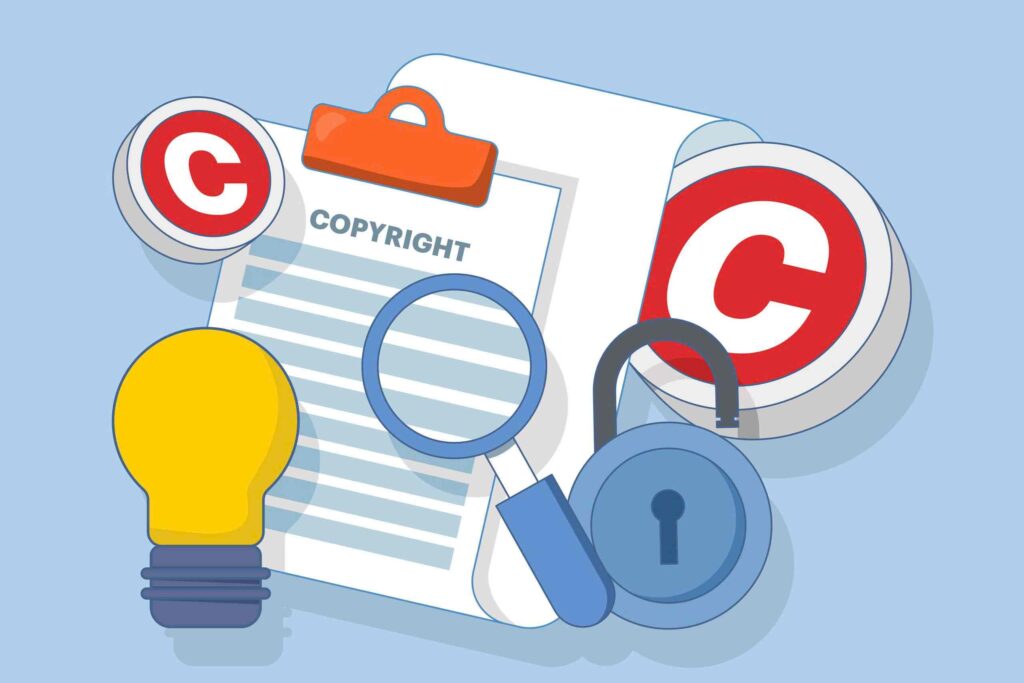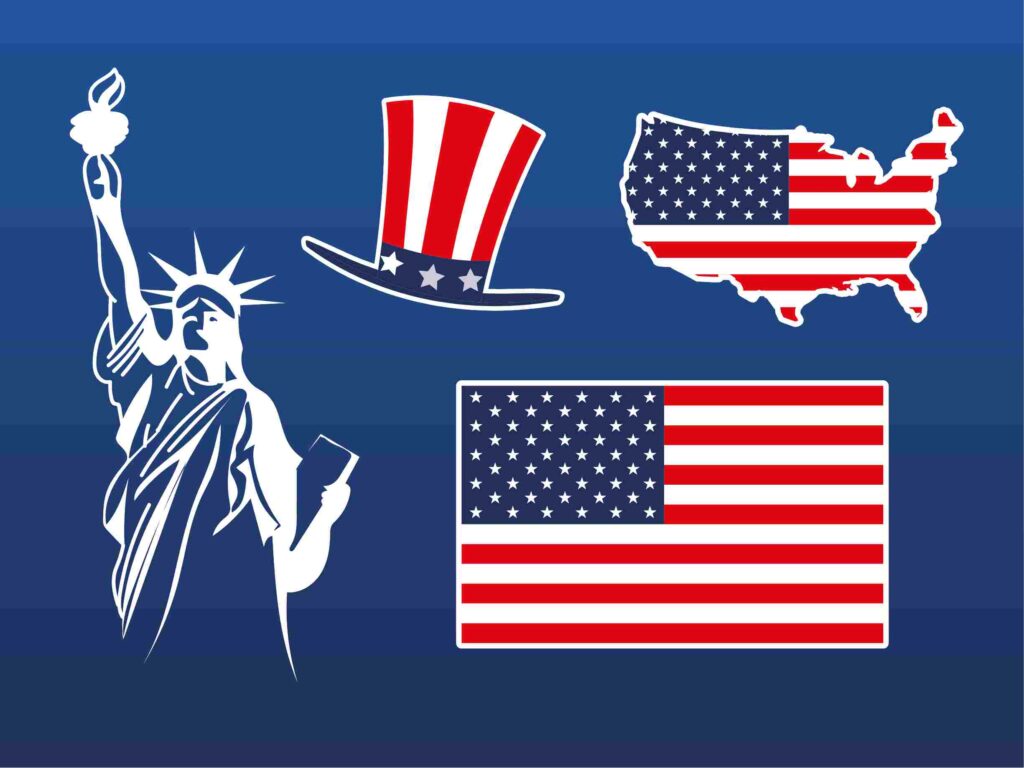The Print on Demand (POD) business model is opening up major opportunities for sellers to build personal brands, generate passive income, and grow their businesses globally. However, alongside those opportunities come potential legal risks – especially concerning copyright and trademark issues in product designs.
This article from FlashShip will help you clearly understand what copyright is, the legal boundaries in POD design, and how to sell and print with confidence – without worrying about takedowns or penalties.

Why Is Copyright a Critical Issue in POD?
When you create or sell products that feature images, slogans, characters, etc., without knowing their origins or having permission to use them, you’re stepping into a legal “red zone.”
Major POD platforms like Printify, Teespring, and FlashShip have strict copyright policies. If a violation is detected, you could face printing rejections, product removals, account suspension, or worse – lawsuits and compensation claims.
Understanding and complying with copyright laws not only helps you avoid legal trouble but also builds a clean, professional, and trustworthy brand in the eyes of your customers.
What Is Copyright? What Is a Trademark? And How Are They Different?
In the POD industry, understanding copyright and trademark is essential if you want to build a sustainable business and avoid legal risks, especially in the U.S. market.
What is Copyright?
Copyright is the legal ownership of an original creative work, such as images, designs, illustrations, music, text, videos, and more. The creator automatically owns the copyright from the moment the work is created. Copyright gives the owner the exclusive right to copy, modify, distribute, or commercialize that work.
Example: A T-shirt design that you draw yourself is protected by copyright. If someone else uses it without your permission, they can be sued for infringement.
What is a Trademark?
A trademark is a recognizable sign used to identify and distinguish a company’s products or services from those of others. It can be a name, logo, color scheme, symbol, or slogan associated with a brand. Trademarks must be registered to gain full legal protection.
Example: The Nike logo and the slogan “Just Do It” are both registered trademarks. Using them in your POD design without legal permission would violate trademark law.
How Are They Different?
| Criteria | Copyright | Trademark |
| What it protects | Original creative works | Brand identity and commercial recognition |
| How it is granted | Automatically upon creation | Requires registration |
| Common violations | Copying images or designs | Using logos, brand names, or slogans |
Why POD Sellers Must Understand This
When designing POD products to sell, you are engaging in commercial activity. Even one small element in your design – such as a celebrity image, brand logo, or cartoon character can lead to serious consequences if it is copyrighted or trademarked.
Violations may result in product removals, account suspensions, takedown notices, or even legal lawsuits and financial penalties. Understanding and respecting copyright and trademark laws not only helps you avoid legal trouble but also allows you to build a professional, trustworthy brand.
Do Not Use the Following Without Permission
Avoid using the following types of content in your POD designs unless you have explicit, official permission:
- Logos of companies, schools, organizations, or clubs
- Characters or images from movies, books, cartoons, games
- Names or likenesses of celebrities, bands, sports teams, or athletes
- Images downloaded from Google, Pinterest, or social media pages
- Memes, quotes, or viral slogans from the internet
- Artwork or illustrations created by other artists
Note: Just because many people are using it doesn’t mean it’s legal. Popularity is not a legal defense for unauthorized use of intellectual property.
Legal Images and Assets You Can Use in POD Designs
To ensure your POD products are legally compliant, sellers must prioritize using resources that do not violate copyright. Below are types of images and assets you can legally use in commercial designs – especially when selling in strict markets like the United States.
National Flags, Emblems, and Coat of Arms

Most national flags and symbols are in the public domain and may be used for commercial purposes. However, some countries have specific regulations regarding the use of their coat of arms or military insignia. Sellers should verify local laws before incorporating these into designs.
Works in the Public Domain
Public domain works are those whose copyright has expired or have been voluntarily donated by the author. You are free to use, modify, and commercialize these works without needing permission or paying licensing fees.
Examples include:
- Classic paintings from the 18th–19th century.
- Historical poems or manuscripts.
- U.S. government publications.
Images Licensed Under Creative Commons
Creative Commons (CC) licenses allow creators to share their work under certain conditions. You can legally reuse CC-licensed images and designs depending on the license type. Choose content with the following labels:
CC0 (Public Domain Dedication) – Free to use without attribution.
- CC BY – Free to use with attribution.
- CC BY-SA – Use with attribution and share alike license.
Note: Avoid using images labeled with “NC” (Non-Commercial) if your goal is to sell POD products.
Important Reminders When Using These Sources
- Always read the license terms of each image, even if it’s marked as “free.”
- Do not reuse designs copied from existing commercial products.
- Avoid mis-tagged content (e.g., “free for commercial use” with hidden restrictions).
- Best practice: Use original designs or hire exclusive design services to ensure complete safety when operating in international POD markets.
Legitimate Image Resources for POD Sellers
Below are trusted websites that offer images and graphics legally available for commercial use (always read the terms of each site carefully):
- Unsplash.com
- Pexels.com
- Pixabay.com
- Rawpixel.com
- Openclipart.org
- Freepik.com
Consequences of Copyright Infringement in POD Design
Copyright or trademark infringement in POD (Print on Demand) designs is not just a minor technical error – it can lead to serious legal, financial, and reputational consequences. This is especially true in the U.S. market, where platforms like Amazon, Etsy, and Redbubble enforce strict content moderation policies.
Takedown Notices, Product Removals, and Account Suspensions
When you use copyrighted images, logos, slogans, or characters without proper authorization:
- Platforms may immediately remove your product listings without prior notice.
- The copyright owner can issue a Cease and Desist letter or take further legal action.
- Your seller account may be suspended or permanently banned, resulting in the loss of all your data, orders, and potential customers.
Financial Penalties and Brand Damage
In more severe cases, sellers may be required to:
- Pay financial damages to the copyright owner, which may range from hundreds to thousands of dollars.
- Cover legal fees, including attorney costs, especially if the case goes to court.
- Suffer brand reputation damage, making it difficult to open a new shop, receive negative feedback within the seller community, or be permanently flagged by platforms.
Real-World Examples
- A seller on Etsy was sued by Disney for using an image of Elsa on a children’s T-shirt design. Result: the shop was shut down, the seller paid $5,000 in damages, and received a permanent ban from Etsy.
- On Amazon, numerous POD accounts were suspended within hours of uploading designs featuring NBA logos or Marvel characters – even when the designs were altered or stylized versions rather than direct copies.
Guidelines for POD Sellers to Avoid Copyright Infringement in Design
To build a sustainable POD (Print on Demand) brand, sellers must focus not only on creative designs but also on ensuring legal compliance in every element. Below is a detailed guide to help you avoid copyright violations when designing T-shirts, especially when selling in markets like the United States.
Carefully Verify Image Sources
Do not use images from Google, Pinterest, or social media unless you have clearly verified their commercial rights. Prioritize sourcing images from legal platforms. If you’re uncertain about usage rights, it’s best not to use them at all.
Prioritize Original and Self-Created Designs
Using original artwork is the safest and most professional approach. You can:
- Create your own designs if you have the skills
- Hire a trusted designer (ideally with an exclusivity agreement)
- Take inspiration from trends without copying any brand elements or copyrighted characters
- Originality not only reduces legal risk but also helps you build a unique identity for your POD brand.
Use Only Legally Licensed Assets
Only use images from sources that:
- Offer clear commercial licenses (e.g., Creative Commons CC0, CC BY)
- Provide licensed content from trusted platforms (e.g., Shutterstock, Envato Elements)
- Are in the public domain (expired copyright or U.S. government-issued works)
- Always read the license terms carefully, even if the asset is labeled “free.”
When to Consult an Expert or IP Attorney
You should seek legal advice if you are:
- Creating products based on a controversial or sensitive trend
- Using third-party images with unclear origins
- Receiving copyright warnings or takedown notices from platforms like Amazon or Etsy
- In these cases, consult an intellectual property expert or copyright attorney before proceeding with product listings.
FlashShip Does Not Support Copyright-Infringing Designs
At FlashShip, we are committed to supporting sellers not only in the fulfillment process but also in protecting their rights and long-term brand reputation. We encourage sellers to build their POD brand sustainably by:
- Creating exclusive and original content.
- Using legally sourced and verified assets.
- Avoiding high-risk trend-chasing behavior.
- Focusing on design value instead of imitation.
FlashShip’s content moderation system automatically rejects designs that contain:
- Logos or icons from well-known brands (Nike, Adidas, Starbucks, etc.).
- Characters from cartoons, movies, or games (Marvel, Disney, Pokémon, etc.).
- Slogans or phrases that are registered trademarks.
- Images showing signs of copyright infringement or lacking commercial licenses.
This moderation process not only helps you stay legally safe but also fosters a transparent environment where POD sellers can confidently build their own brand.
In the POD market, where opportunities are vast but copyright risks are real – setting a clear, compliant direction from day one is essential to building a sustainable brand.
Clean, legally sound designs don’t just help you avoid legal setbacks; they lay the groundwork for scalable growth, high-converting ad campaigns, and long-term success on platforms like Amazon, Etsy, and TikTok Shop.
At FlashShip, we’re more than just a print partner. We’re here to support your journey with world-class print quality, U.S. standard SLA, and dedicated assistance in content compliance and brand protection.
